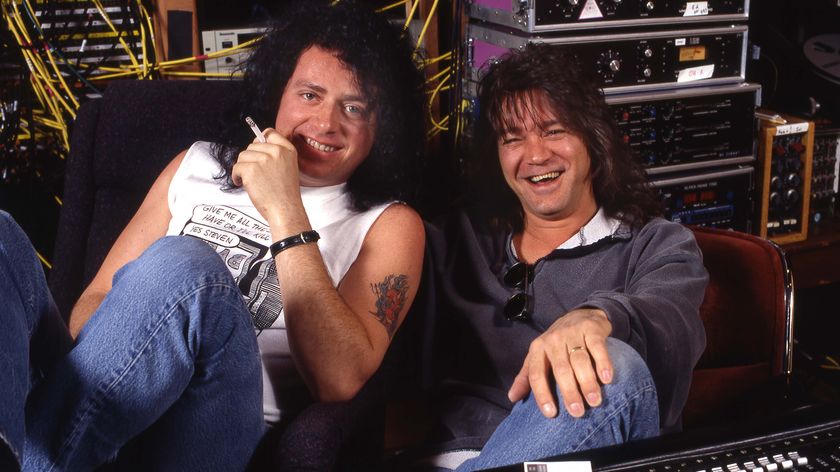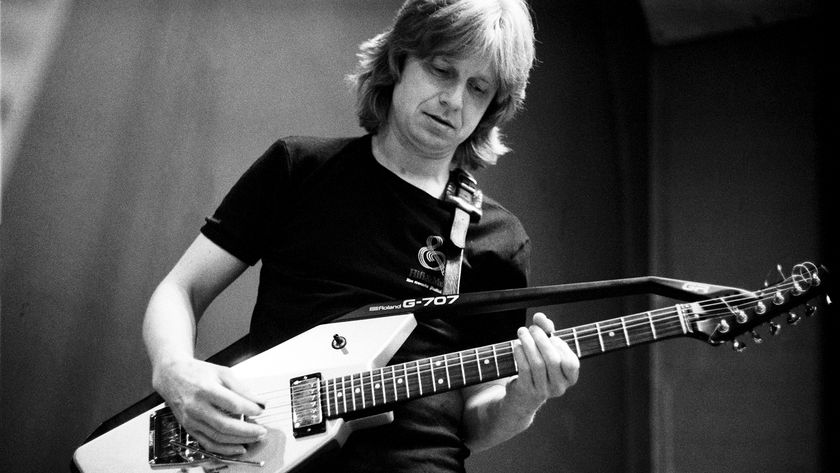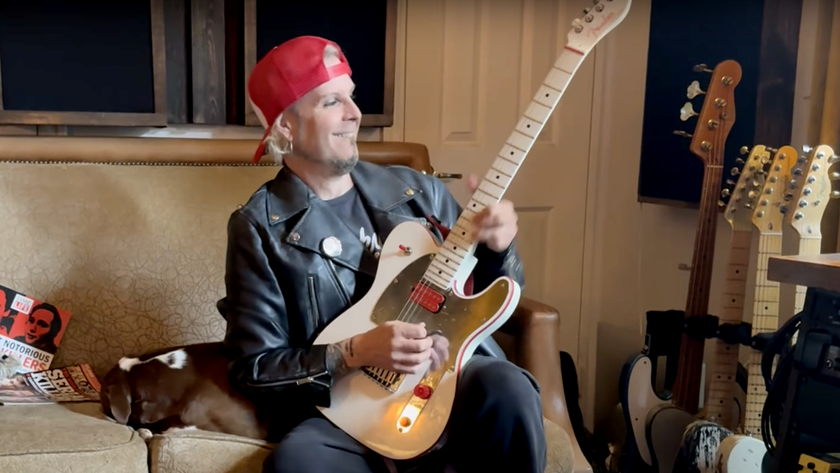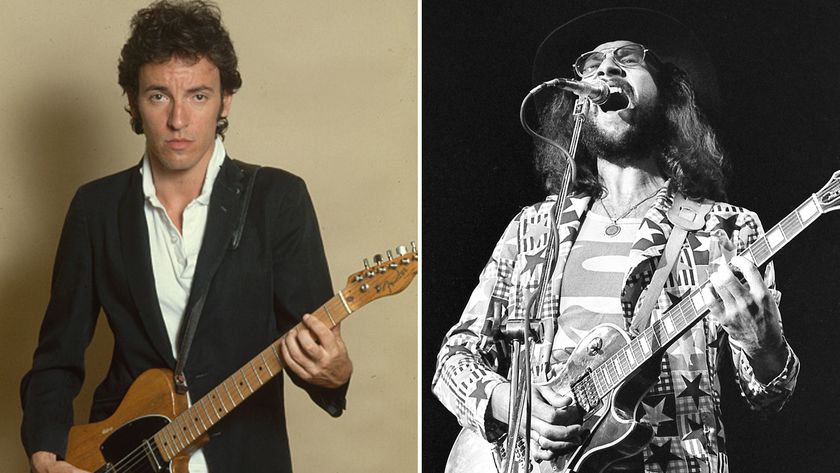Classic Tones: “Smoke On the Water” – Deep Purple
A mystery for decades, here’s how Ritchie Blackmore nailed that benchmark hard rock Strat sound.
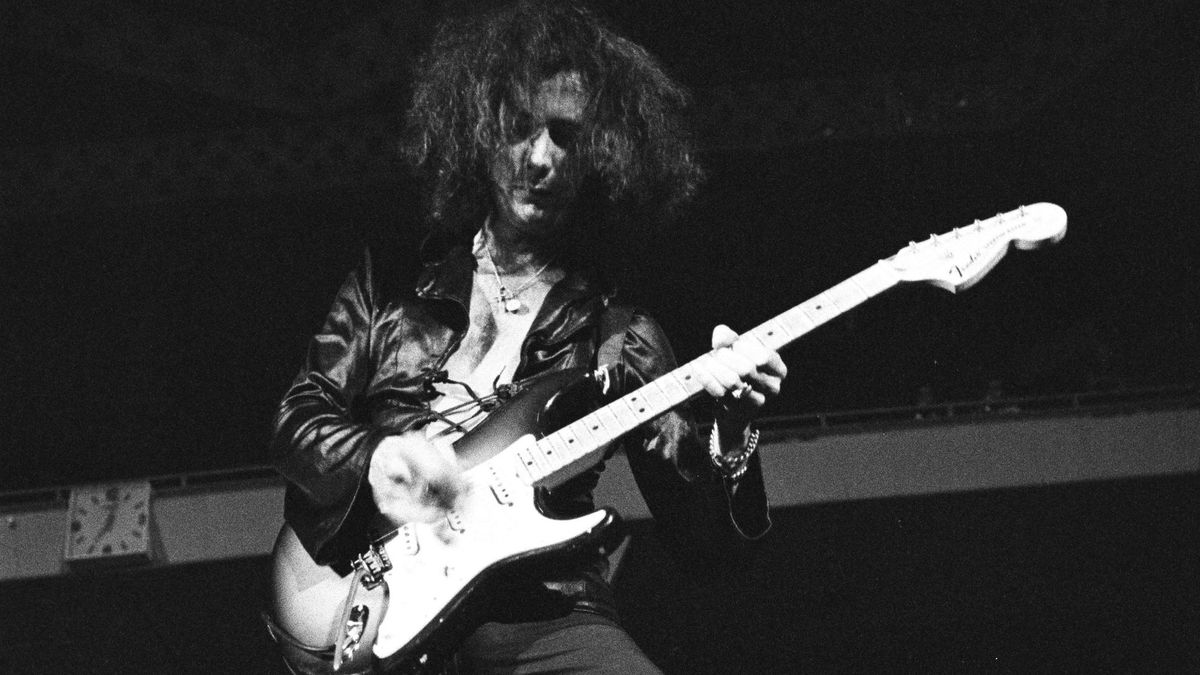
Infamously strummed using fifths in guitar stores for decades, Ritchie Blackmore’s “Smoke On the Water” riff (adapted from Beethoven’s “Fifth Symphony” according to the Deep Purple guitarist) is one of the most memorable and anthemic electric guitar moments in the entire history of hard rock.
Tracked during the sessions for Deep Purple’s 1972 Machine Head album Blackmore managed to glean this touchstone tone by plucking (rather than strumming) double-stop fourths using a large-headstock CBS-era maple ‘board Fender Stratocaster.
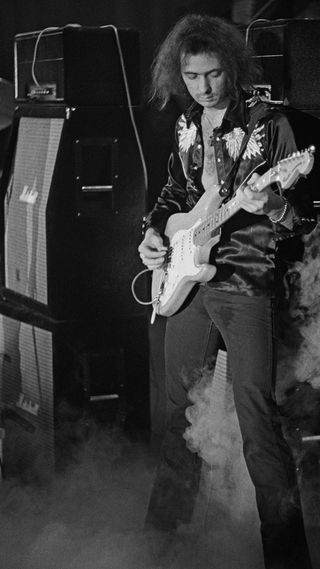
While he was using both Marshall and Vox amps at the time, a Hornby-Skewes Treble Booster unit was also employed to produce a more biting top end and a subtle touch of distortion. Interestingly, the band’s keys player, Jon Lord, also used a Hornby-Skewes Treble Booster in tandem with a Marshall amp to thicken the already harmonically rich tones of “Smoke On the Water.”
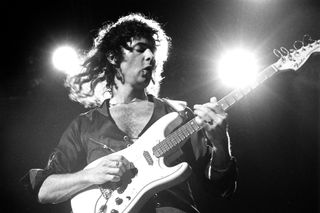
Recorded using a mobile studio belonging to The Rolling Stones, the bulk of the guitar tracks were cut in an empty theater in Switzerland, giving the sound a unique ambience. Having been moved on by the local police for making too much noise, however, the band set up again in an empty hotel where Blackmore then cut his solo using a Stratocaster neck pickup with his amp isolated in a separate space.
For some instant Ritchie Blackmore-inspired tones take a look at Catalinbread’s new Dreamcoat and Skewer pedals.
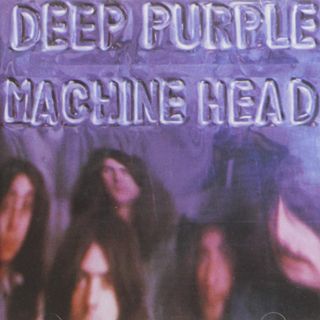
Buy Deep Purple’s Machine Head here.
Get The Pick Newsletter
All the latest guitar news, interviews, lessons, reviews, deals and more, direct to your inbox!
Rod Brakes is a music journalist with an expertise in guitars. Having spent many years at the coalface as a guitar dealer and tech, Rod's more recent work as a writer covering artists, industry pros and gear includes contributions for leading publications and websites such as Guitarist, Total Guitar, Guitar World, Guitar Player and MusicRadar in addition to specialist music books, blogs and social media. He is also a lifelong musician.
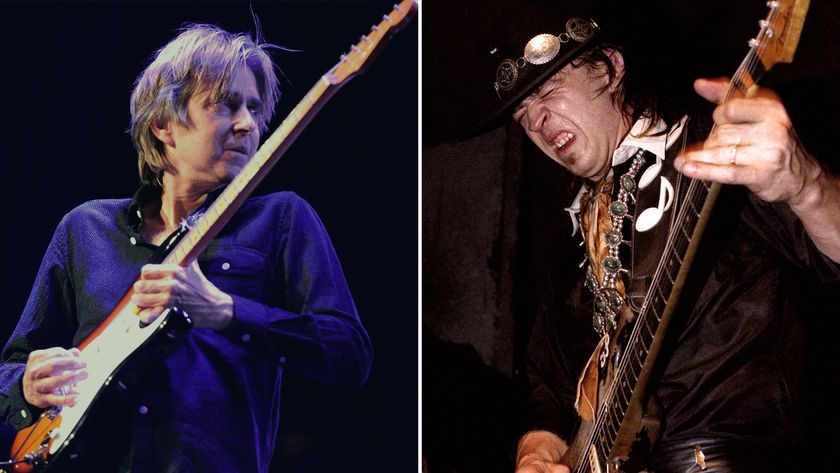
“It was like standing next to a hurricane.” Eric Johnson on the night he and Stevie Ray Vaughan jammed Jimi Hendrix. Fortunately, someone was running tape

“You might call it the blues. But to me it’s cultural misappropriation.” Ian Anderson tells why he clashed with Mick Abrahams and reveals what it takes to become Jethro Tull’s guitar player

